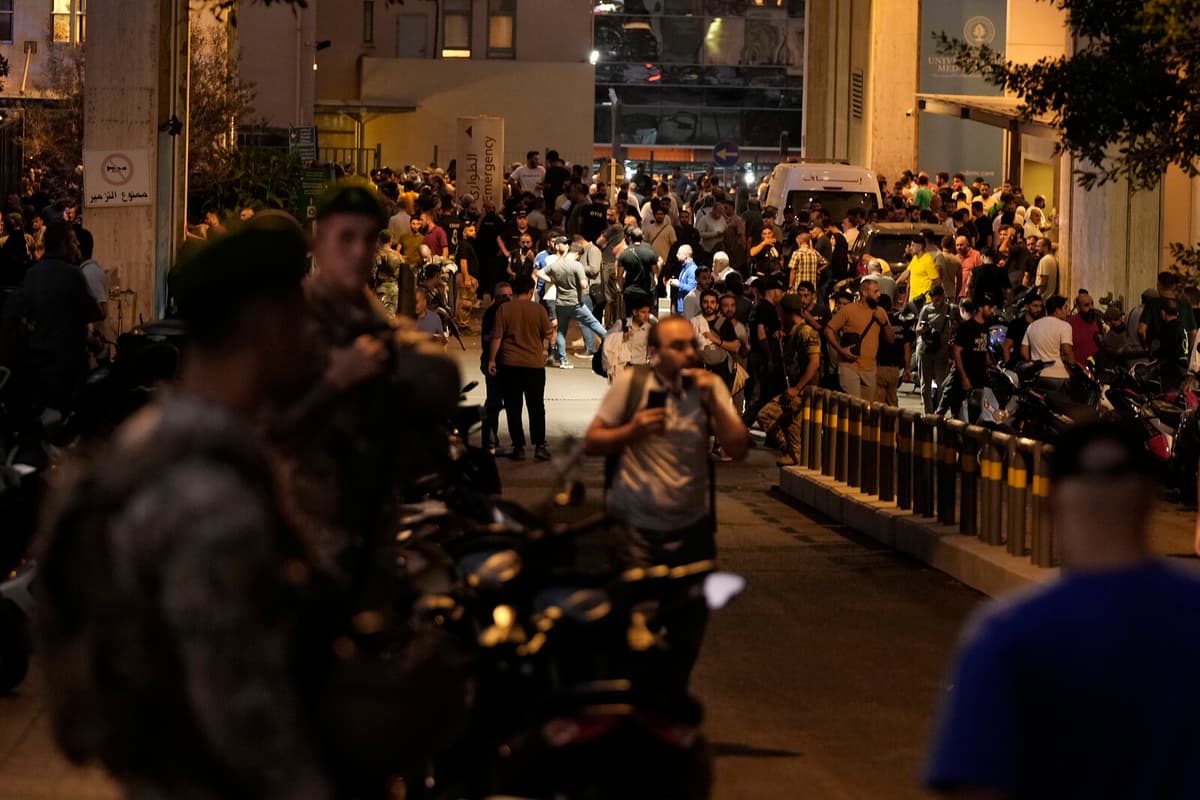One by one, hundreds of detonators exploded around Lebanon. Local media report that over 1,000 people were affected, who detonated within an hour after receiving incoming calls.
I've never in my entire life seen people walking on the street and then just exploding, says Beirut resident Musa to news agency AFP.
At least nine people have died in the explosions. The Lebanese Health Minister Firass Abiad says that at least 2,750 people were injured, 200 of them seriously. Most injuries are to hands, stomach, or face.
Hizbollah reports that a 10-year-old girl was killed when her father's detonator exploded.
The militia, without evidence, points to Israel as "fully responsible" for the explosions and says that its response will come "where the enemy expects it and where it does not expect it".
"Total Chaos"
The affected are mainly members of Hizbollah, but also private individuals and healthcare personnel. Even Iran's ambassador to Lebanon was injured, according to a statement.
Footage from surveillance cameras in Beirut shows how the devices burst into small explosions, knocking people down.
Witnesses report that panic spread as the detonators began to explode.
The healthcare system immediately appealed for blood donors, and many hospitals report chaos. AFP describes patients being treated on thin mattresses on the streets.
It's total chaos. I can't take in what's happened today, says Um Saleh, who lives in Beirut, to The New York Times.
The Syrian Human Rights Observatory (SOHR), which monitors events in the war-torn country from exile in the UK, reports that 14 Hizbollah members in Syria were affected.
The authorities urge all owners of detonators to get rid of them and to stay away from wireless communication devices, including mobile phones.
Own System
The explosions came just hours after Israel's security police Shin Bet announced that it had foiled an assassination attempt against a high-ranking member of the security service.
Hizbollah uses its own telecommunications system to communicate, including with detonators. The militia has urged its members to avoid mobile phones to prevent the system from being hacked.
Since the war in Gaza broke out following Hamas' terrorist attack on October 7, Israel and Hizbollah have been attacking each other on a daily basis.
Corrected: An earlier version of the text stated figures for the number of dead and injured that were later changed.
An Islamist movement, created in the early 1980s as a reaction to a conflict situation similar to today's. The Palestinian Liberation Organization (PLO) had used southern Lebanon as a base for attacks against northern Israel, which led Israel to invade in 1982.
Inspired by the Islamic revolution in Iran a few years earlier, Lebanese Islamists formed Hizbollah ("God's Party"), a name chosen by the Iranian leader Khomeini.
A declared main goal has been to expel all "colonialists". In practice, this has meant that much of the armed struggle has been directed against Israel – seen as the representative of the Western world in the Middle East.
In Lebanon, Hizbollah functions as "a state within a state", with a military power at least as great as the country's army and a strong role in politics and social life.






